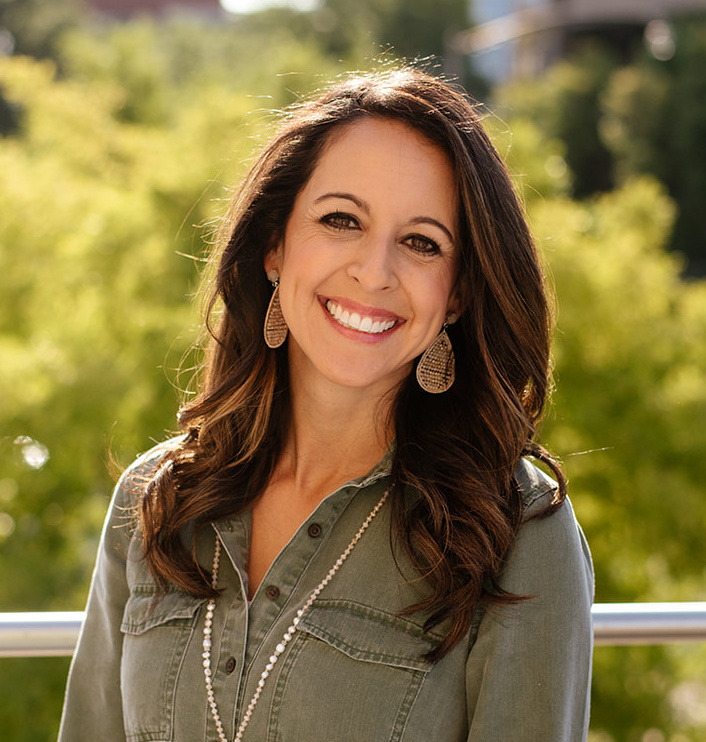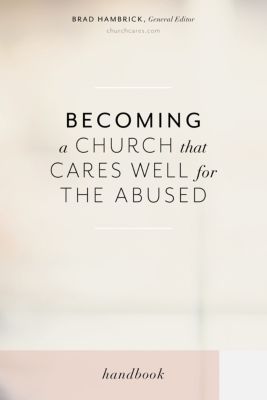
As we walk alongside the sexual abuse survivor, the greatest truth we can patiently and faithfully impart is a robust theology of justice and hope that are only in our Heavenly Father.
By Jacki King
Have you ever been “sad-mad”? I know it isn’t a technical term, but it’s one I’ve used often with our three boys. Several years ago, we had to say goodbye to our beloved family dog, Saige. As we broke the news of the day’s event, my oldest (8 at the time) burst into giant tears. And our middle son (6) screamed in anger, “This isn’t right!”
I’ve thought of that moment often over these last few years in leadership and ministry. Grief, loss, injustice, and pain seem to hit us all differently. And lately, it seems like the brokenness of this planet is leaving us in a perpetual state of being “sad-mad.”
As I, like many of you, have read reports of grievous sins of sexual abuse and personally walked with women who have similar stories of trauma, this “sad-mad” feeling has left me with questions. When and how do I respond? What do I say? And most importantly, what do I do in these moments? I’m still learning what this looks like in my own life. But I’ve found, in many ways, the journey of lament is the path we need to take forward with a sexual abuse survivor.
Listen and lament
The language of lament is all over the Bible. More than a third of the Psalms are words of lament. We have an entire book of the Bible titled “Lamentations.” And we have an intimate snapshot of Jesus standing at the tomb of His friend Lazarus weeping in anger. “Lament” means to express or feel deep sorrow; to weep or wail; to mourn.
The language of lament is all over the Bible. More than a third of the Psalms are words of lament. — @JackiCKing Click To TweetIt reminds me of the lament in Psalm 77. The writer shares a snapshot of the deep toil, sleepless nights, and even the questioning of God’s love and removal of blessing in a season of crisis.
“My hands were continually lifted up all night long;
I refused to be comforted.
I think of God; I groan;
I meditate; my spirit becomes weak.” (Psalm 77:2-3, CSB)
For a sexual abuse survivor, the deep despair affects their entirety—mind, body, and soul. As those trying to faithfully walk alongside them, it’s easy for us to jump to solutions in moments of brokenness. But in doing so, we minimize their pain and keep ourselves from understanding the weight of sin’s scars on image-bearers. By listening to a survivor’s story, we can seek to understand and validate their pain, betrayal, and loss of trust. When we mourn with those who mourn, we’re able to use the language of lament to heal.
Leverage your voice
We wouldn’t be at this moment in history if it weren’t for the sacrifice, courage, and resilience of survivors whom God is using to bring light to the darkness. These sisters and brothers are invaluable for us to understand how to move forward and to show those in our care what it looks like to honor, advocate for, and leverage our influences for the healing of others.
For those who’ve courageously told their stories, we’re immensely thankful. And still, we must be mindful of the many others who hold their abuse privately. According to the National Sexual Violence Resource Center, 81% of women and 43% of men have reported experiencing some form of sexual harassment and/or assault in their lifetimes. This means there are men and women of different ages and backgrounds sitting in our sanctuaries, attending our Bible studies, and serving in our ministries who have walked through this immense pain in their lives.
81% of women and 43% of men have reported experiencing some form of sexual harassment and/or assault in their lifetimes, according to the National Sexual Violence Resource Center. Click To TweetInviting survivors to share their stories, sharing resources, knowing who to connect people to for Christian, trauma-informed therapy, and speaking clearly and directly against the evil of abuse are all steps we must be taking to honor and protect the men and women in our congregations.
Lean in with care
I spoke with a friend who has experienced sexual abuse to ask about practical ways friends, family, and church members can come alongside a sexual abuse survivor. She shared it’s important to keep in mind every survivor’s journey is unique. There isn’t one specific pathway for healing, but there are key components that help show care and concern and create safe spaces for people to share.
- Respond immediately and with urgency: Listen and hear what’s being shared. Don’t jump to conclusions or share doubts.
- Compassion: Be kind and loving, and continue to check in on them.
- Protect: Create avenues and safe spaces for them.
- Wisdom: Point them toward medical and professional help, and ask if you can pray for them.
- Tenderness: The flood of emotions survivors feel, especially after first telling their stories, will leave them feeling exposed. Patience and gentleness, even in the exposure of evil, help them to know they’re safe and fought for.
Lift your head
At the end of Psalm 77, the words of lament turn into songs of remembrance as the writer looks back on God’s character and declares God’s holiness and miraculous works not only in the generations before but in hope of the future. He declares that God is faithful, strong, holy, and ultimately our great Redeemer.
“God, your way is holy.
What god is great like God?
You are the God who works wonders;
you revealed your strength among the peoples.
With power you redeemed your people…” (Psalm 77:13-15a, CSB)
As we walk alongside those with unimaginable pain, the greatest truth we can patiently and faithfully impart to them is a robust theology of justice and hope that are only in our Heavenly Father. The church has often spoken of forgiveness at the expense of God’s justice and peace without the reality of life’s chaos. God is over all and working in and through it all.
God’s justice goes hand-in-hand with His mercy.
God’s strength is leveraged toward our weakness.
His redemption comes running toward our brokenness.
He sees, knows, and will right all that’s been kept in the dark.
He is holy.
As we look forward to the coming days, months, and years, I pray we will not be stagnant or take steps backward. I pray that together we move forward one step at a time.
We lament together and heal together. We hope together and long for Jesus together.

Jacki King
Jacki serves as the minister to women at Second Baptist Conway and is the author of The Calling of Eve: How Women of the Bible Inspire Women of the Church. She has a passion for seeing women fall in love with Jesus and His Word, while challenging them to be on mission in their homes, workplaces, and communities.
If you or someone you know has been the victim of sexual abuse, National Sexual Assault Hotline is available 24/7 at 800-656-HOPE (4673). For allegations of abuse within the SBC, you may contact a confidential hotline set up through the Sexual Abuse Task Force through its third-party firm, Guidepost Solutions, at 202-864-5578.











